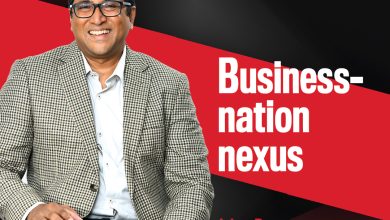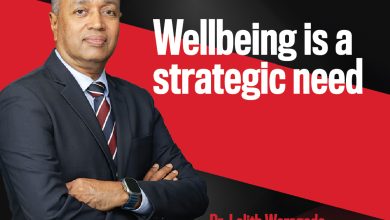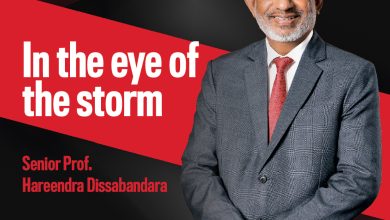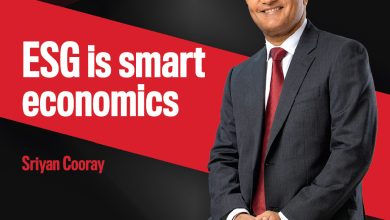MANAGEMENT PROFILE
The long view
Hemaka Amarasuriya
Hemaka Amarasuriya is a former Chairman of Acme Printing & Packaging and a former Chairman of Singer (Sri Lanka)
The management committee reflects the ideology of a body corporate; its beliefs and interests are accepted with such conviction that these are irrefutable,” says Hemaka Amarasuriya.
 For an ideal committee, a chairman should handpick a small coterie of talented entrepreneurs – non-traditionalists who can drive the organisation beyond the industry growth rate.
For an ideal committee, a chairman should handpick a small coterie of talented entrepreneurs – non-traditionalists who can drive the organisation beyond the industry growth rate.
“My preference is for them to have cross-functional experience so they can understand each other better and deliver on new projects – and return to new vistas as the body corporate must have the capability and flexibility to change rapidly,” he recommends.
Amarasuriya believes a management committee is of no value if it cannot bind as a ‘team,’ which is why it’s important that the chosen few bind together as one. He maintains that “the chairman would rue the day he makes a wrong choice for senior management as that one decision can cost the organisation millions of rupees.”
He elaborates that “an egoist will not find a place in my ideal team. It’s relevant to quote Abraham Lincoln and Ronald Reagan in this context: ‘There is no limit to what a man can do or where he can go if he doesn’t mind who gets the credit’.”
In his view, the management committee should display a single-minded purpose to all stakeholders. The members are the ‘ions’ of the company – they need to be known to have abiding integrity. If they say one thing and do another, the structure becomes superfluous, he adds.
“Their unity should showcase the reliability and durability of the organisation. They need to be smart in their functional areas, among the best in their field islandwide and multilingual to be able to communicate the corporate vision beyond the four walls. They have to be true ambassadors for the company,” Amarasuriya explains.
Integrity, he stresses, is the first quality they should possess: a shining beacon of light on the hill, delivering skills in their chosen field of speciality , having the courage to take risks, working amicably with peers, understanding their responsibilities, and reading the minds of the CEO and board to ride the company’s strategic direction.
“The committee members should build cohesive management structures under them and encourage cross-functionality within and present exceptional public relations and communicating skills outside,” he emphasises.
Amarasuriya goes on to say that “an emerging economy such as ours needs to face up to and withstand serial shocks. A senior manager must be resilient to these ‘mood swings’ and keep his or her cool so that others do not panic. So mindfulness also needs to be a trait to look for at the senior level.”
He observes that the Sri Lankan business sector is enamoured with one year key performance indicators (KPIs) but says we must realise that targets, budgets and so on are oversensitive to environmental shocks and serial disruptions as we have experienced over the last four financial years.
In Amarasuriya’s opinion, a planning cycle should be structured for two to three years, whereby senior management has the space to build on their added value projects over an extended planning cycle and there’s space for new business models to evolve.
“The engagement must be mid to long term to realise the capability and not be confined to short business cycles controlled by a wayward economy,” he opines.
Commenting on management committees in multinationals, he says: “They form management teams across borders where members are from varying cultures and ethnicities from East to West. As corporate history has shown, it is challenging for a global chairman to build a cohesive team to power the opportunities prevailing in his or her territory as these may not match the ideal business philosophy of a global synergy.”
Amarasuriya remarks: “Whether this strategy is right or wrong is a conversation worthy of debate!”





